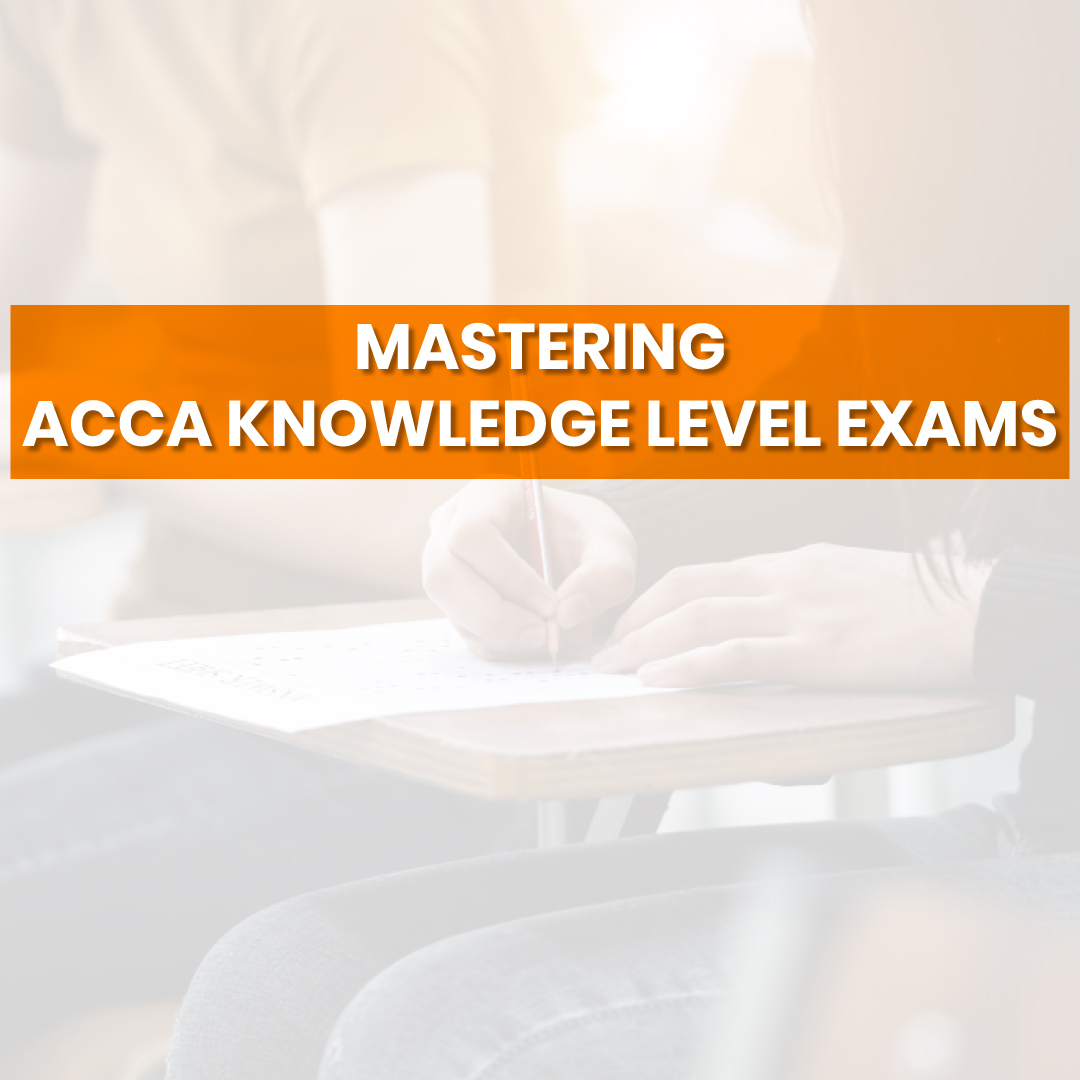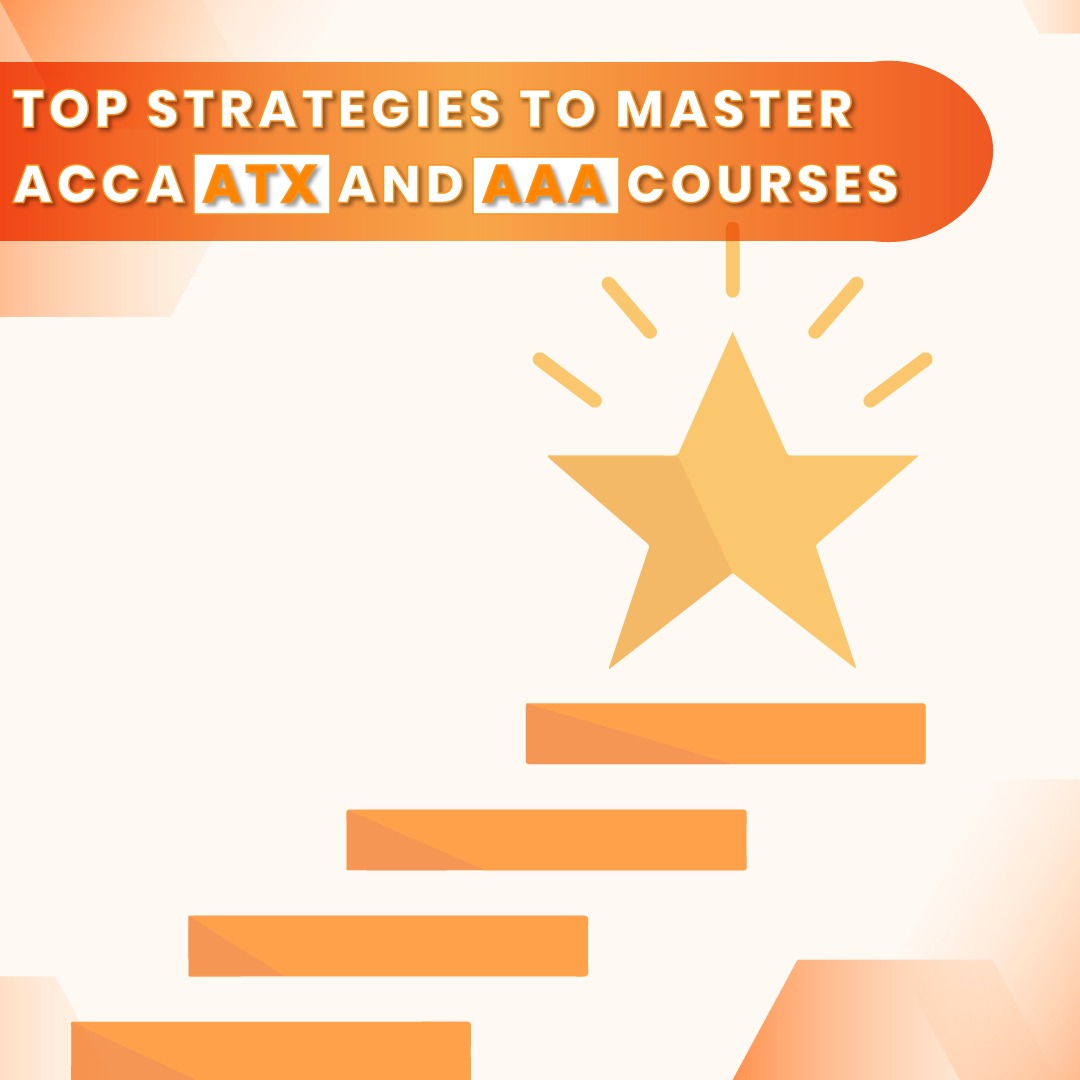The ACCA Knowledge level exams are the initial steps in the ACCA learning journey, incorporating three papers: Business and Technology (BT), Management Accounting (MA), and Financial Accounting (FA). These subjects are known for providing the fundamental information and abilities needed by students who want to work in finance and business. Numerous career or practice alternatives could become available to someone with this level of qualification. These courses provide you with the technical know-how you need to advance while covering the foundational ideas of finance and business. They offer a starting point for additional study in accounting and finance at the appropriate diploma or degree level, if necessary. Here is a brief overview of each ACCA Knowledge Level Exam paper, followed by the exam structure and strategies for quality for each paper:
ACCA Knowledge Level Exam Papers
Business and Technology (BT): BT helps in understanding the business environment, how companies operate, and how technology affects business operations. These are the main topics of this course. Ethics and governance are also covered.
Management Accounting (MA): The MA program equips students with the necessary abilities for business decision-making by introducing them to important management accounting topics such as budgeting, variance analysis, costing, and performance evaluation.
Financial Accounting (FA): FA covers the fundamentals of financial accounting, such as how to prepare financial statements and comprehend cash flow, income, and balance sheets. International accounting standards are also introduced.
——————————————————————————————————–
Business and Technology (BT)
Business and Technology (BT) encompasses a wide range of topics, including corporate governance, ethics, leadership theories, basic company structures, and the foundations of management and employment practices.
Business and Technology (BT) Exam Format
The computer-based exam is used to administer the ACCA BT exam. This implies that a computer screen will be used for both reading and responding to queries.
Types of Questions: There are 46 objective test (OT) questions in Section A, including 30 two-mark and 16 one-mark questions.
There are six multi-task questions (MTQ) in Section B, and each one is worth four marks. Each of the six syllabus areas will have one MTQ.
Top Tips to Qualify for Business and Technology (BT) Exam
Regular practice: Practice on ACCA’s sample and previous questions. Set a rigorous two-hour time limit for yourself, take the complete mock exam at once, and thoroughly review your results.
Effective Time Management: Give each mark about 1.2 minutes. Pacing is essential because there are 100 marks altogether. Students who misunderstand a question or omit important terms like “except,” “not,” or “all of the following” may lose points.
Recognize the Question Framing: Usually, simple multiple-choice questions, theoretical questions assess your memory. With scenario-based questions, you may be shown a brief account of a company dealing with particular problems.
——————————————————————————————————–
Management Accounting (MA)
Management Accounting (MA) is more internally oriented. It emphasizes data analysis, budgeting, performance metrics, and the nature and function of management information.
Management Accounting (MA) Exam Structure
It is a two-hour computer-based exam with a 50% passing score. The test is objective.
Multiple-choice questions are more limited than objective tests.
The ACCA MA Exam is divided into two parts.
- 70% of the exam is covered in Section A, which has 70 out of 100 points (35 two-point questions).
- 30% of the exam is covered in Section B, which is worth 30 out of 100 points (3 ten-mark multi-task problems).
Top Tips to Qualify for the Management Accounting (MA) Exam
Time Management: In total, you have two hours. It sounds like a lot, but it can fly instantly. Aim for 1.2 minutes for each 2-mark question in section A, or roughly 10 questions answered every 20 minutes. Try to allot 15 minutes for each 10-point question in section B.
Focus on Question Pattern: It’s crucial to focus on questions with negative wording when taking the test. For instance, you can occasionally be asked to respond to questions like “What is the least…” or “What is not correct?”
Don’t Get Caught in a Situation: It’s normal to have a mental picture of a situation, but occasionally it may differ greatly from the one that is being asked. Once more, pay close attention to the scenarios and questions.
——————————————————————————————————–
Financial Accounting (FA)
Financial Accounting (FA): focuses on providing students with the fundamental information and abilities needed in financial accounting.
Financial Accounting (FA) Exam Format
The two-hour computer-based ACCA FA exam has a 50% passing score. The examination is objective and covers considerably more ground than just responding to multiple-choice questions.
The ACCA FA Exam is divided into two parts.
- Seventy percent of the test is covered in Section A, which has 70 out of 100 points (35 two-point questions).
- 30% of the test is covered in Section B, which carries 30 points out of 100 (two multi-task questions of 15 marks).
The two multi-task questions in section B will each consist of a scenario and a number of tasks. Consolidation and accounting preparation are among the main topics of this exam segment.
Top Tips to Qualify for the Financial Accounting (FA) Exam
Frequent Editing: Instead of cramming, set aside a certain amount of time every day or every week for FA. Frequent touchpoints will improve retention and reinforce ideas.
Practice Sample Questions: Although theoretical knowledge is good, ACCA exams require practical application. Make use of question banks, practice tests, and previous exam papers. To simulate test conditions, time yourself.
Stay updated: ACCA often updates its syllabus to reflect changes in standards and practices. Make sure you are checking through the most recent content.
Last Verdicts
As this blog comes to an end, it is evident that to successfully proceed with their ACCA exam preparation, ACCA aspirants need to understand the basic concepts covered in each ACCA paper, including the exam structure, total duration, and the question types to ensure their success in the exam.
Consider enrolling in Mirchawala’s ACCA course if you’re looking for guidance and support from leading ACCA experts in the industry.
Frequently Asked Questions (FAQs)
Q: What are the knowledge-level papers in ACCA?
Ans: The Knowledge Level ACCA course covers three subjects: Financial Accounting (FA), Management Accounting (MA), and Business and Technology (BT).
Q: What is the pass mark for the ACCA knowledge level?
Ans: No matter the level or subject of the exam, the passing score for all ACCA exams is set at 50%. A standardized assessment of competency throughout the qualification is ensured by this constant benchmark.
Q: Which is the best ACCA institute to complete the ACCA Knowledge level papers?
Ans: Mirchawala offers an online ACCA course for all levels worldwide. There is an expert team of tutors guiding students throughout the journey.







